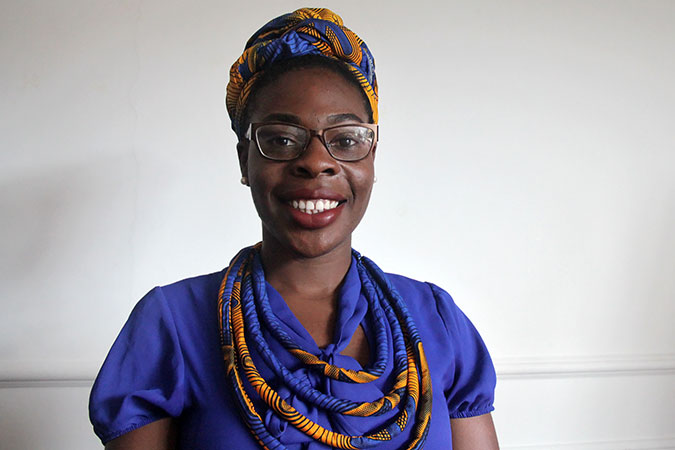From where I stand: “Peace is not the absence of armed conflict”
Cherisse Francis says she is a feminist because she believes in gender equality, and believes that to truly experience peace, women and girls must be on equal footing with men and boys.Date:

![]()
Both in Barbados, where I am from, and in Trinidad & Tobago, where I now live, young women begin their lives as unequal [to boys and men]. We are taught to be quiet and submissive; our laws do not protect us against all kinds of violence.
In less privileged households, when a girl turns 16, or right after puberty, she’s often forced by her mother to contribute towards the bills, either by working or by finding a man who is willing to support her and the household.
In the Caribbean, as women, we are not experiencing peace. Peace is not just the absence of an armed conflict. For me, peace means not having to be fearful of street harassment when choosing what to wear. Or for a woman to be treated on equal footing in the field of business, where she is valued for her mind and not forced to perform sexual favours to get ahead. Peace is inherently linked to a women’s right to have control over her body and her health and her decisions.
In my generation, we are seeing more men becoming respectful towards women. Women are pursuing careers, no longer confined to the home. But even as we move towards some levels of equality, there is a prevalent misconception in the Caribbean that we are moving from one extreme to the other, leaving men marginalized.
We have yet to arrive at a place where women are viewed as equals to men. As women, we have to do double the work—we can have careers, but we also have to be in charge of taking care of the home. We haven’t broken the glass ceiling, and women still get paid less than men.
Creating a culture of peace in the Caribbean will not happen overnight. We need to engage young men, as well as young women, to achieve gender equality and to experience real peace.”
Cherisse Francis, 23, was born in Barbados and currently lives in Trinidad and Tobago. She works to empower young women and girls in detention centres by offering support and counselling through the Hugh Woodings Law School. Francis recently participated in the Youth, Peace and Security Regional Consultation in Panama City, organized by UN Women and UN partners. Her story reflects the importance of engaging youth in achieving the Sustainable Development Goal 16, which promotes peaceful and inclusive societies, and SDG 5, which aims to achieve gender equality and empowerment of all women and girls.
Read more stories in the “From where I stand...” editorial series.